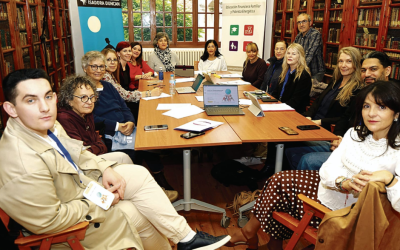By Jenny Davidson, CEO Council of Single Mothers and their Children
This week is Anti-Poverty Week, a time dedicated to spreading awareness about families living in poverty in Australia. For CSMC, working to address systemic issues that lead to poverty for single mother families is critical work we undertake every week.
Researchers at the HILDA survey, a major national study, describe single mother poverty as a “silent crisis”, with almost one in three single-parent families are now living below the poverty line. According to their research, single-parent families are almost three times more likely to experience poverty than those with two parents. Unfortunately, this is not news to us, and that poverty is highly gendered among single parent households.
Gendered drivers of this poverty are the highly disproportionate caring responsibilities, with many single mothers having their children 12 out of 14 days; the gendered pay gap and concentration in lower paid industries; the high levels of lived experience of family violence, with long term consequences for financial security; and a lack of individual pathways to financial security that acknowledge and accommodate all of these structural factors.
This Anti-Poverty Week, I want to acknowledge what this means for mothers and their children.
Single mother families experience the impact of poverty in different ways. For those with insecure housing, it can mean having no peace of mind that the home you provide for you children will be yours next month or next year, or being crowded into a spare room or garage, couch-surfing and at the worst, living in your car or a tent. For others, it means skipping meals in order to feed your kids, ignoring medical needs, and juggling provision of many basics. We know that poverty can impact mothers’ and children’s study and employment opportunities. For the growing number single mother families experiencing such insecurity for the first time as costs and rents rise about incomes, poverty can mean major changes in their lives along with increased fear and anxiety.
CSMC’s provision of specialist support services for single mother families enable us to observe patterns and changes in the way that poverty plays out over time and observe emerging issues. Notable is the strong connection between poverty and place.
Put simply, where you live can play an important role in who will experience poverty and how they will experience it. David Tennant, the Victorian Co-Chair of Anti-Poverty Week, discusses it well in this succinct article, which I urge you to read.
In the article, David explains that income is just one way to define poverty; inequitable access to essential services and support is another. When proximity to education, healthcare and public transport options are compromised, even if services are available locally, they may be inaccessible.
For example, if you are struggling to afford petrol to get to work – lack of access to public transport may mean you are unable to maintain employment, further plunging your family into poverty.
We can see the effects of this in the input young people growing up in single mother families provided us for our report ‘To be Seen and Heard’. It really hit home how place and poverty impact young people particularly hard.
One of our respondents was a TAFE student in a regional area. They lived a good distance from town (where rents are cheaper) and relied on their mother to drive them – and this meant they arrived hours early for their class and were not getting home until after dark. They worry they won’t be able to continue their course.
You can watch the stories of some of the young people who spoke with us, and read more about what they said here.
CSMC’s ‘To be Seen and Heard’ is a ground-breaking report, because it focusses on elevating the voices of young people growing up in single mother families. When talking poverty, these voices are particularly important, given the HILDA survey tells us that 34.7 per cent of children living in single-parent households are in poverty.
While over the past three years, the Federal Government has made several changes aimed at easing financial pressure on single parents, including extending eligibility for the Parenting Payment Single until a child turns 14 and (marginal) increases to Commonwealth Rent Assistance, significant challenges remain.
Government payments remain far below the poverty line, Rent Assistance is not comparable with market rents, family-friendly employment is hard to find, and too many single mothers are pushed by punitive government systems into minimum wage jobs which do not enable them to ‘work their way’ out of poverty while leaving them significantly more time poor. Reverse each of these and we will find some solutions: significantly increase all working age government payments and Rent Assistance, create more secure, family-friendly jobs, and support single mothers into flexible work-readiness pathways that align with their interests, caring obligations and local context. To achieve this, we need understanding of poverty and investment in change by government and the private sector.
Poverty is complex and changes over time. What does not change is that when single mothers in crisis call our Support Line, they need assistance and they need it quickly. I am proud to be part of an organisation that single mothers turn to when they need support, and incredibly thankful to our members and supporters who make this possible through their advocacy and generous donations.






0 Comments